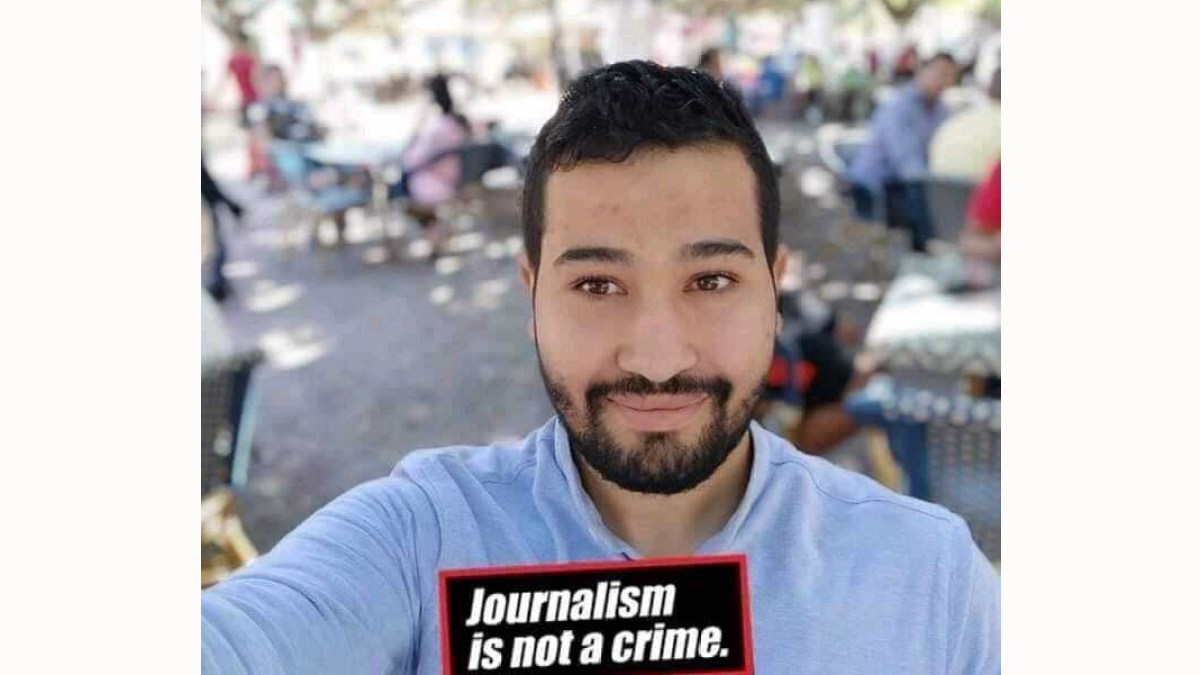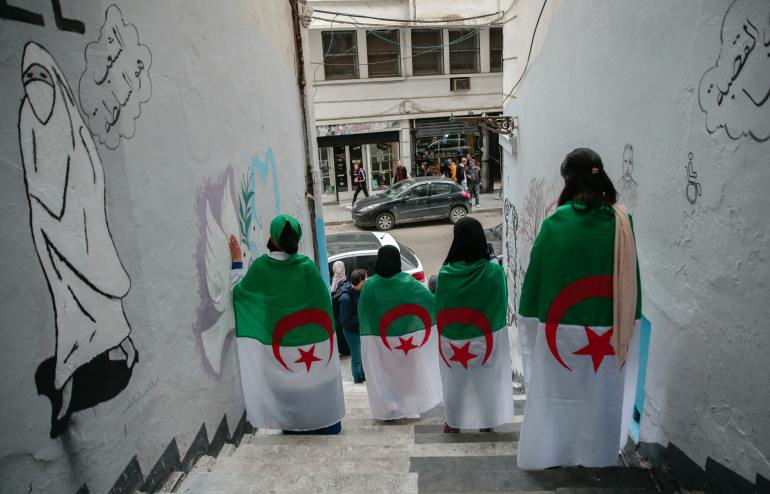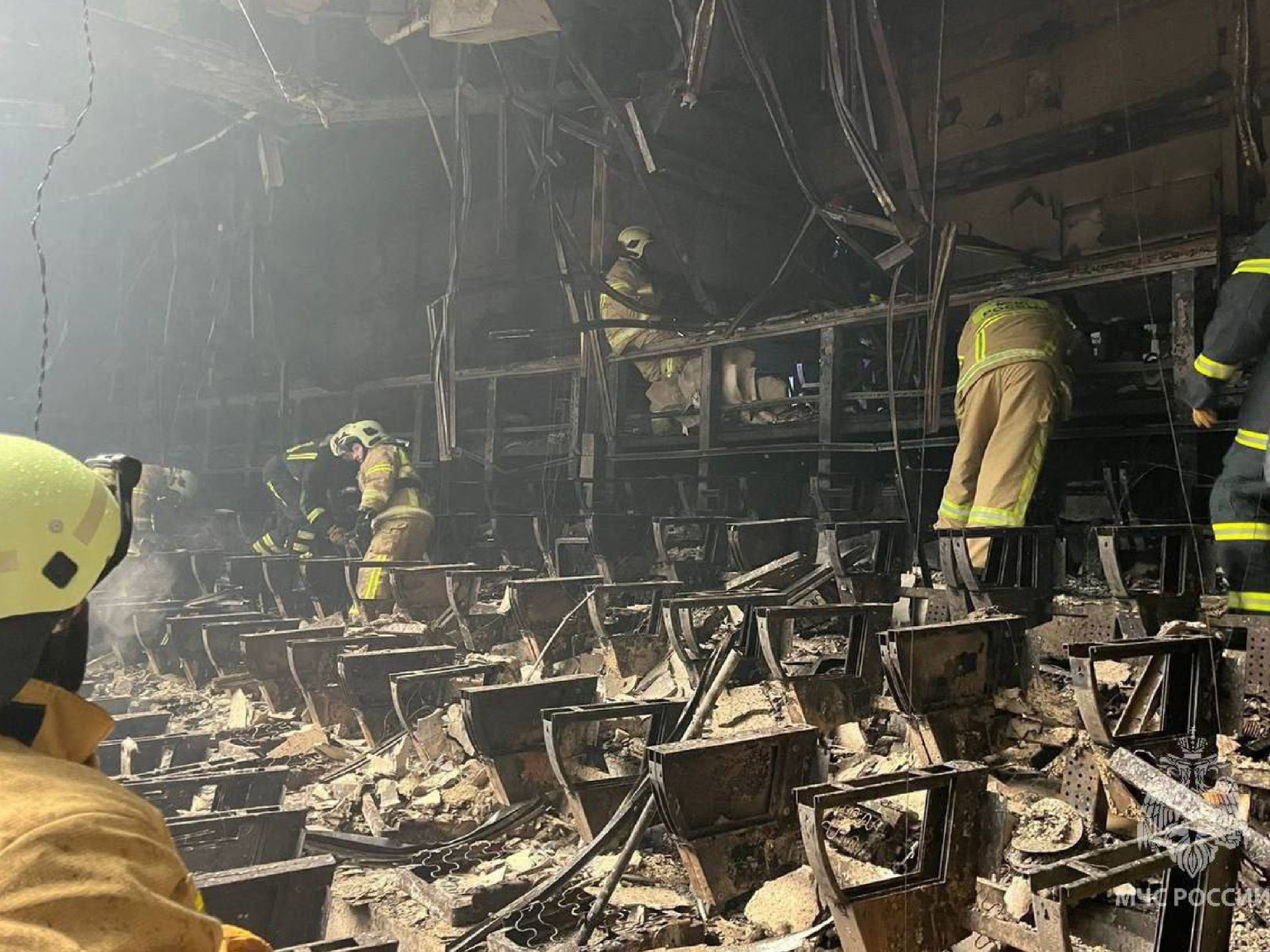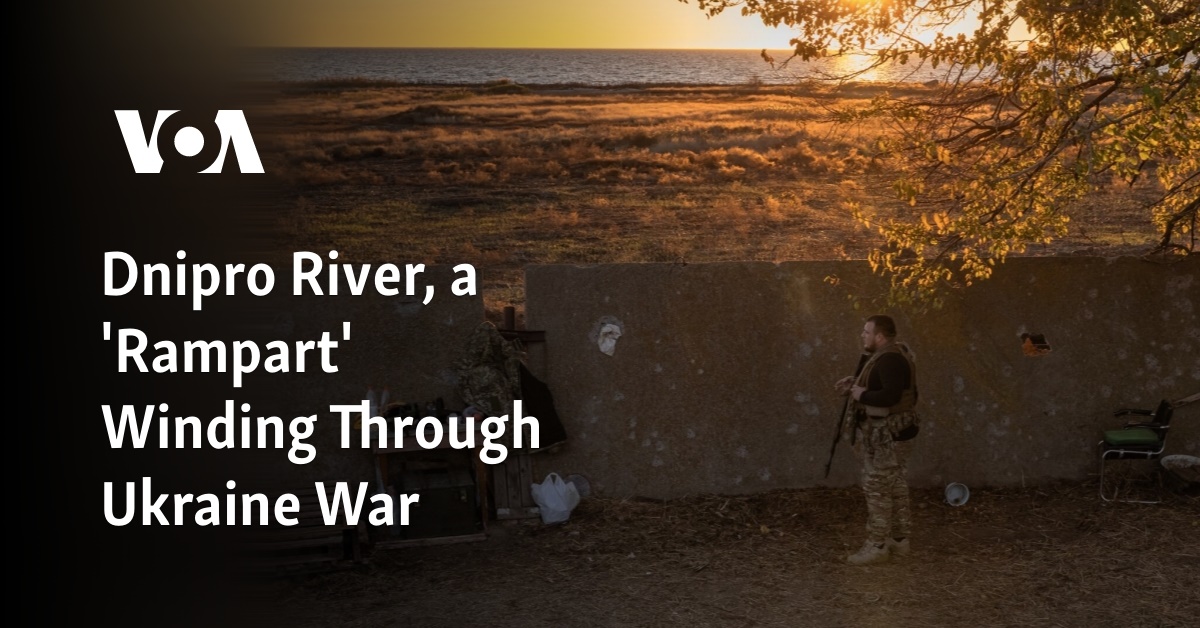
Since February 2019, Mustapha Bendjama, the editor of the daily newspaper Le Provincial, has been detained and interrogated by police forces at least 35 times.
In his hometown of Annaba in eastern Algeria, he is under constant pressure from the authorities because, according to his allies, he constantly questions government policies.
In February he was arrested at the newspaper’s headquarters in Annaba in connection with the escape of a well-known dissident to France via Annaba and Tunisia despite being banned from leaving the country.
Greater context
Bendjama’s case is anything but unique. Every day, the National Committee for the Liberation of Detainees (CNLD), created in 2019 to monitor politically motivated detentions, announces new arrests, trials, releases and trials.
There are so many that some prisoners are lost in the system, while others are so afraid that they and their families refuse to publicize their cases for fear of reprisals.
According to human rights activist Zaki Hannache, there are currently 228 prisoners of conscience in Algeria, most of whom are charged with “terrorism.”
At least 1,200 people have been detained since 2019 in connection with participation in Hirak, Algeria’s nationwide pro-democracy protest movement, or for criticism posted online, he said.
Many were brought in for regular interrogation and dozens were repeatedly detained.
Across the country, local media outlets have also been subjected to intense repression. 17 journalists were sent to prison, including the editor of Radio M and Maghreb Emergent. Ihsane El Kadi, who is currently behind bars.
Justice prevented
After 10 days in custody, during which he said he was physically abused during interrogation, Bendjama was charged on two separate counts.
He was in one Charged at the end of August – along with Algerian researcher Raouf Farrah – for receiving foreign funds to commit acts against public order and for leaking classified information and was sentenced to two years in prison.
In November, in a separate case, he was sentenced to six months in prison for “involvement in illegal emigration” for allegedly helping the escape of an opposition figure Dr. Amira Bouraouiwho had been banned from leaving Algeria while awaiting her appeal against numerous convictions.
Both Bendjama and Farrah had their original sentences reduced and Farrah was released.
During the first trial, a member of his defense team, Zakaria Benlahrech, pointed out that the accusation of “leakage of confidential information” was very close to the investigation into Bouraoui’s departure, suggesting that the real reason for the official harassment of Bendjama lay elsewhere could .
“There is a woman who left the country illegally,” Benlahrech told the court. “They said to each other: Who is in Annaba? There is Mustapha Bendjama who does not want to join.”
Bendjama, who is currently incarcerated in Boussouf Prison in Constantine, went on hunger strike on October 3.
In an interview with Al Jazeera, Benlahrech confirmed that an appeal had been lodged.
“We hope that the appeal court will acquit him as he has nothing to do with these allegations. He is a young journalist who is independent and very professional. He loves his country and his job. His place is not in prison,” he said.
In February 2019, hundreds of thousands of Algerians demonstrated weekly across the country, first to prevent the long-time president, the publicly absent and incapacitated paraplegic octogenarian Abdelaziz Bouteflika, from running for a fifth term, and later to demand greater transparency in the country, many of whom wanted previous ones be held accountable for violations of the law.
However, the protest movement, the largest since Algeria’s independence, disappeared from the streets following the outbreak of the coronavirus pandemic two years later, and few of the changes activists had hoped for have been achieved.

When the streets were empty, the government cracked down on previous dissent. Several organizations that supported the Hirak, such as the Youth Action Rally (RAJ), the Algerian League for the Defense of Human Rights (LADDH) and two opposition parties, the Socialist Workers’ Party (PST) and the Democratic and Social Movement (MDS). ), were banned by court decisions. Not surprisingly, activists from these groups were targeted when they refused to step down.
“The repression affected more than ten PST leaders and activists,” Mahmoud Rechidi, the PST’s secretary general, told Al Jazeera. “It reminds us of the one-party era before October 1988”
Since 2019, at least seven LAADH members have been detained, including Ahmed Manseri, a veteran activist and head of the organization’s office in Tiaret in the west of the country.
Since the Hirak, Manseri has been summoned and arrested by security forces at least 20 times and has also been accused of “praising terrorism.”
On October 8, 2023, Manseri was arrested along with his wife, who was later released after he was repeatedly prosecuted while their home was searched by police.
Two days later, his previous sentence of one year in prison was confirmed by the Algiers court.

According to a statement posted on the CNLD’s Facebook page, Manseri said specified At the end of October, he said that “his arrest was foreseeable due to the deterioration of freedoms, freedom of speech and expression and human rights” in Algeria.
Along with Manseri, hundreds of other protesters and activists have been placed under judicial control, meaning they must regularly register with the court and have their activities, movements and daily encounters monitored. In many cases they are prohibited from leaving the country.
At least for now, it appears that Algeria’s social movements, including in the south, have been silenced.
According to Al Hogra news website editor Merzoug Touati, Algeria’s ongoing campaign of repression suggests that while the Hirak may have retreated, fears of their return remain.
Touati himself was prosecuted on ten counts and served three prison sentences.
“The Algerian people have torn down the wall of fear… The regime has more or less succeeded in rebuilding it,” Touati said.
“However The spirit of Hirak remains despite the repression and if [the regime] Let go of the pressure, he might come back.
“An example of this is the fact that Algerians have been banned from even demonstrating in support of the Gaza Strip because the regime knows that the crowd will once again shout the slogans of Hirak.”






Recent Comments